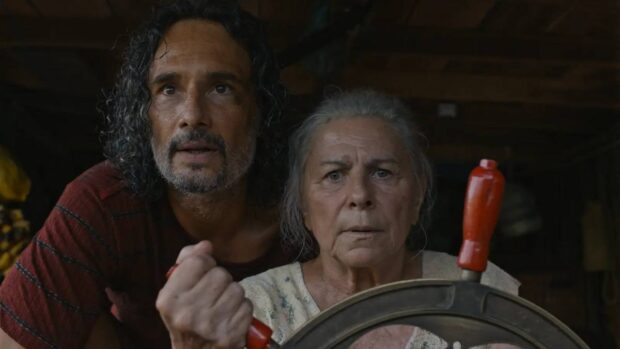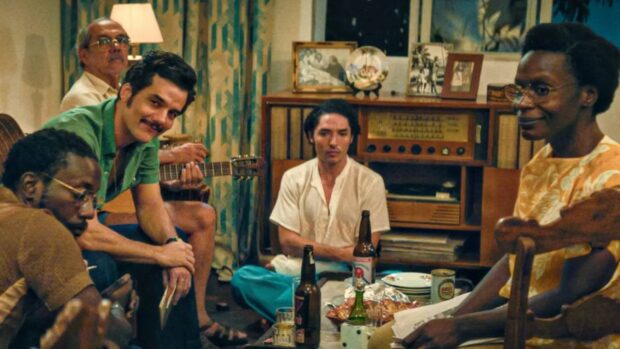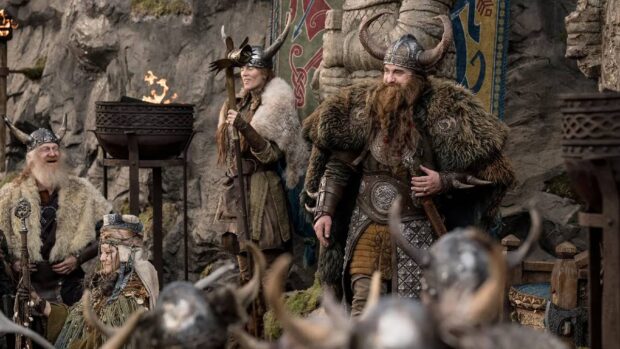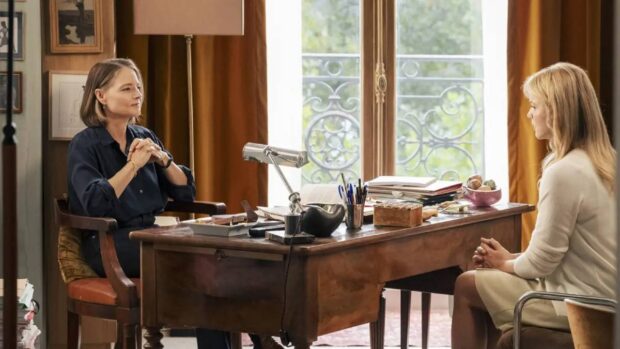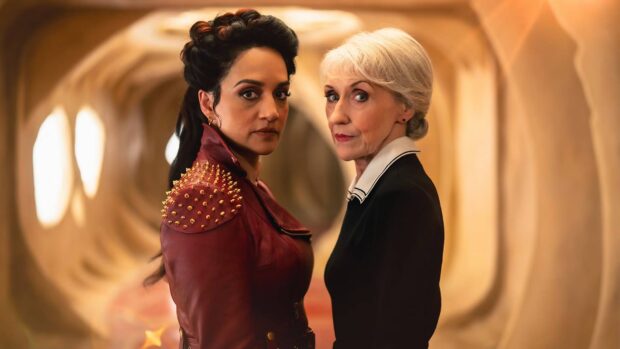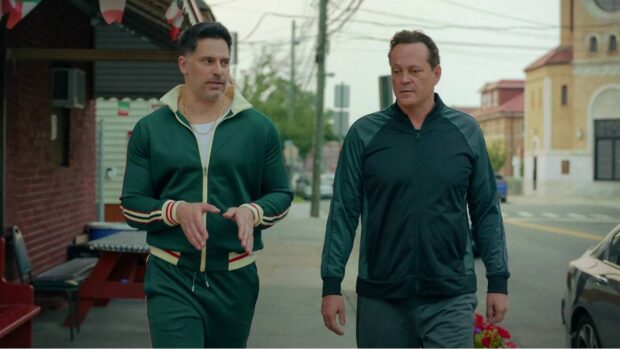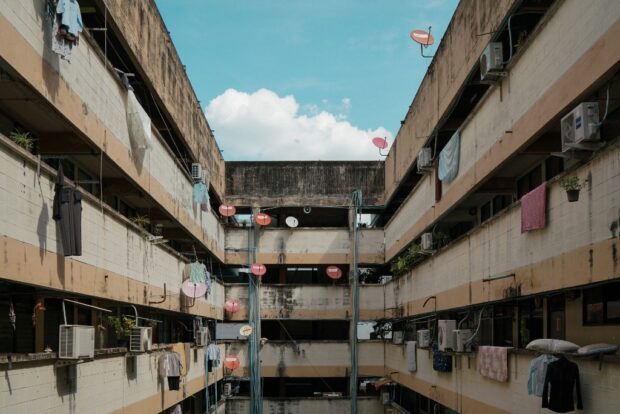Celine Song’s Past Lives was one of those rare films that quietly worked its way into our hearts and stayed there long after the credits rolled. Its power lay in the intimacy of its missed connections and the sharp emotional focus on its leads. So it was always going to be interesting to see what Song might do with a broader canvas.
MATERIALISTS, the follow-up to her award-winning debut, certainly boasts a more marquee-friendly cast, with Dakota Johnson, Pedro Pascal and Chris Evans headlining. While Song embraces some of the familiar contours of mainstream romantic dramas, she also consciously subverts them, offering an almost aggressively downbeat meditation on love, money and emotional detachment in the big city.
Johnson plays Lucy, a top matchmaker at Adore, an elite dating firm catering to clients seeking meticulously curated partners. She’s brilliant at her job: nine of her matches have resulted in marriage, but she remains deliberately detached, choosing celibacy and professional success over entanglement. That changes when she meets Harry (Pascal), the groom’s brother, at the reception for her latest match, who immediately begins love-bombing her with his expensive lifestyle. She also reconnects with John (Evans), a struggling actor and Lucy’s ex, now waiting tables at the event.

In a typical Hollywood romance, we know how this all plays out: two princes vying for the same woman, one seemingly perfect, the other lacking what she thinks she wants until, of course, he doesn’t. On the surface, that’s exactly what Song appears to be doing, right down to the emotionally articulate finale. That’s what makes MATERIALISTS so surprising: Song is clearly aware of these familiar beats but chooses to approach them askew.
It’s all the little deviations that make the difference: the muted exchanges, the low-key reflections on the calculated risk of love. Lucy’s philosophy is something like Moneyball for relationships. A darker subplot involving one of her clients being assaulted underscores just how high those risks can be. In another inversion of romantic convention, no one runs through rain to seize a final shot at love. Instead, they rush to help a friend in trouble.
The film is bookended by an awkward caveman motif about the inevitability of love, one of several thematic ideas Song toys with but doesn’t fully resolve. MATERIALISTS is an admirable attempt to deconstruct the well-worn terrain of modern romance. Song may ultimately arrive at the genre’s familiar checkpoints on her own terms, but she stills comes to the same conclusions all the same.
2025 | USA | DIRECTOR: Celine Song | WRITERS: Celine Song | CAST: Dakota Johnson, Chris Evans, Pedro Pascal | DISTRIBUTOR: A24 (US), Sony Pictures Releasing (International) | RUNNING TIME: 105 minutes | RELEASE DATE: 12 June 2025 (Australia), 13 June 2025 (USA)


